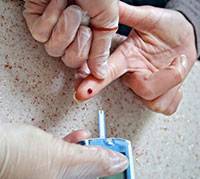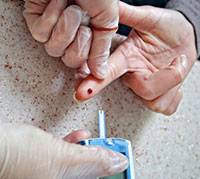A recent study published in Nature Medicine found that an estimated 14 million cases of type 2 diabetes resulted from poor nutrition. Diets lacking whole grains or containing excessive amounts of rice, wheat, and processed meats were linked to the disease. Researchers at Tufts University analyzed dietary patterns in 184 countries using data from 1990 and 2018, revealing that more than 70% of new diagnoses in 2018 were due to unhealthy dietary habits. All 184 countries in the study reported increases in type 2 diabetes over the past 30 years.
The research focused on 11 dietary factors, concluding that three had a negative impact on the rising diagnoses of diabetes. The study's lead author, Dariush Mozaffarian, stated, "Our study indicates that poor quality carbohydrates are the main driver of diet-attributable type 2 diabetes worldwide, with significant variation by country and over time." He added, "These new findings reveal critical areas for national and global focus to improve nutrition and reduce the devastating burdens of diabetes."
The analysis also found that "poor dietary patterns lead to a higher diagnosis rate among men compared to women, younger individuals compared to older, and urban populations compared to rural, affected by this chronic disease." Central and Eastern Europe, as well as Central Asia, were found to have the highest rates of diet-related type 2 diabetes.
Study author Megan O'Hearn explained, "If left unchecked, and with rising incidence rates expected, type 2 diabetes will continue to affect population health, economic productivity, and healthcare systems, leading to health inequities worldwide." She continued, "These findings can help identify nutritional priorities for healthcare providers, policymakers, and private-sector stakeholders as they encourage healthy dietary choices that address this global epidemic."
A press release noted that the rising cases of type 2 diabetes represent an increasing burden on individuals, families, and healthcare systems. Type 2 diabetes occurs when the pancreas fails to produce enough insulin, hindering the body’s ability to regulate and use sugar for energy.




